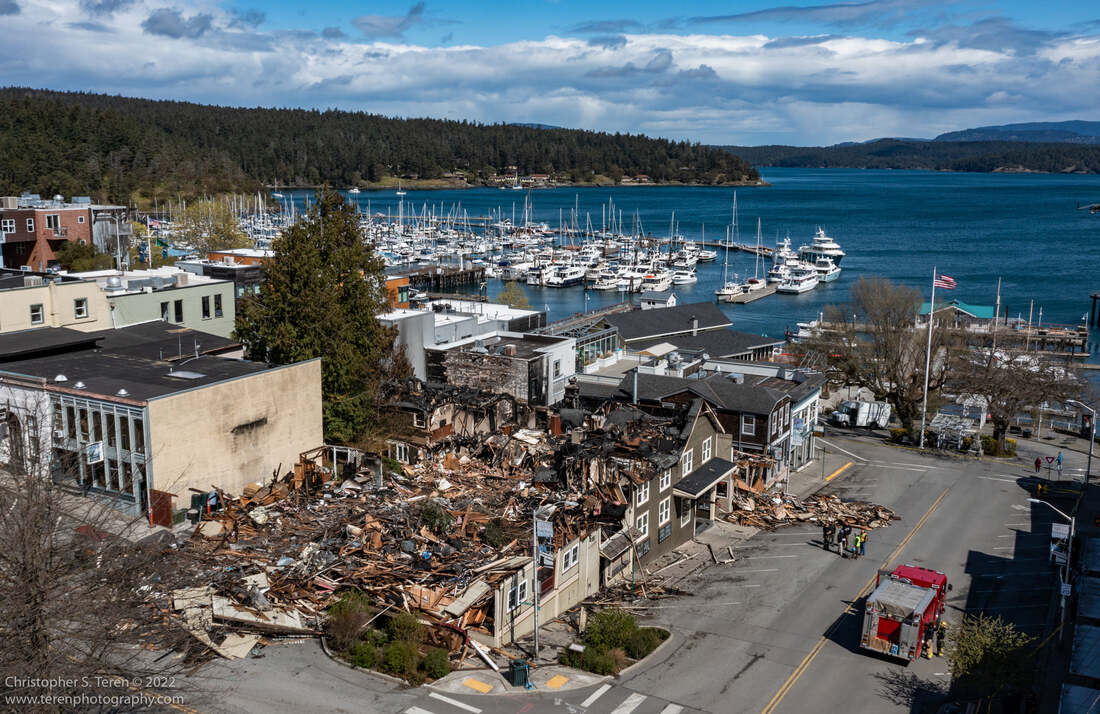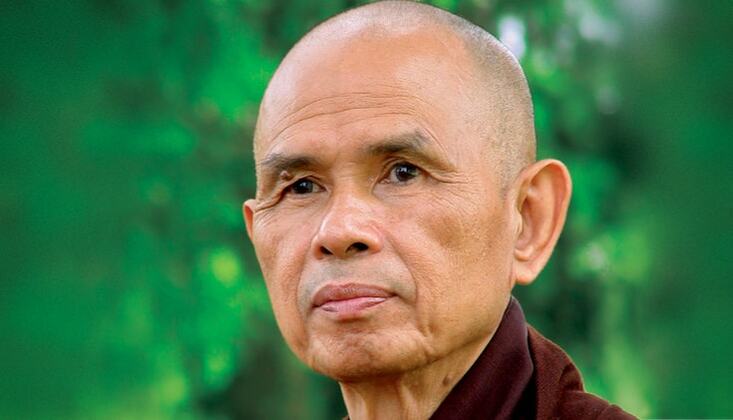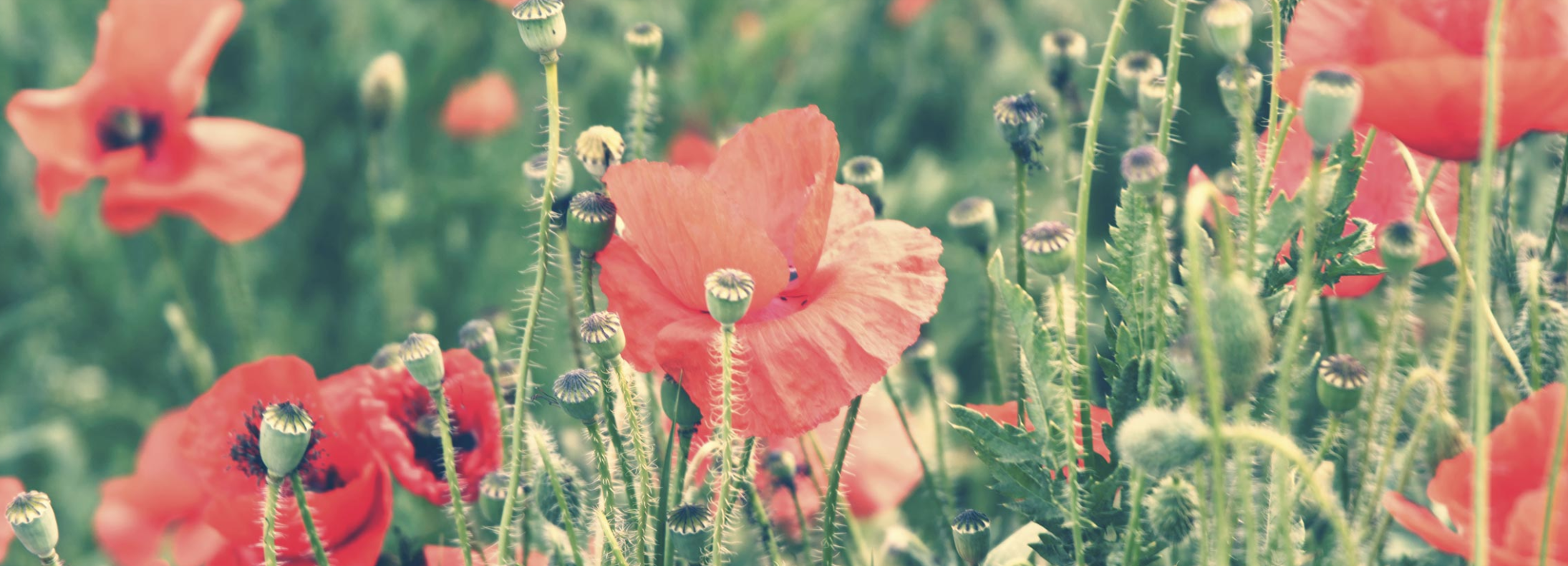|
Caregivers, I live in Friday Harbor in the San Juan Islands, WA. We have a lovely little downtown district and the San Juans provide enough natural beauty to last a lifetime. Last Thursday, several of our historical district buildings from the late 1800's which housed 4 businesses and several offices burned to the ground at 4 am. Inspectors from the Federal Bureau of Alcohol, Tobacco and Firearms have arrived to investigate the cause of the fire. Needless to say, the community is in mourning. As I followed throughout the hours until the fire was extinguished, one thought continually surfaced. It is a quote Fred Rogers shared years ago. When he was a child whenever he was frightened by something he witnessed, his mother would address his fear with these words: Look for the helpers. Those words quieted his fear. I looked for the helpers and they arrived. Our Washington State ferries stopped visitor services and ferried firefighters and fire trucks from our surrounding islands - Orcas and Lopez, along with Skagit County fire department. Together with our San Juan Island firefighters they worked to stop the massive fire from devouring more structures on Spring Street, the heart of our town. All reports claim the owners of the buildings and businesses hope to rebuild. There are so many lessons to be embraced at a time like this and each one of us will take from it what we will. I'll stick with the helpers. They came and risked their lives and put their time, skills and talents to the best use possible. They thought of others before they thought about the danger to themselves. They made a difference. Just like all of you. Thank you for the caregiving work you do everyday.
"Much of our suffering comes from wrong perceptions. To remove that hurt, we have to remove our wrong perception." Thich Nhat Hanh (1926-2022) Caregivers, I read this quote from the man who spent his life sharing his knowledge of love, understanding and compassion. I've never read one of his quotes without feeling he is spot-on. And this quote is no different, especially in regards to our world today. One of the questions I often hear when presenting a training is: how do I deal with someone who disrupts my life and creates drama wherever he goes? Often this question is in relation to the workplace environment. This is happening on a very grand scale today due to the challenges Covid has placed before us. Thich Nhat Hanh, who left us recently at age 95, offers deep listening and loving speech. In other words, communication that is open to empathy and compassion for another. He notes what he suggests is not easy, especially in our Western world where being wrong eats away at our self-esteem and causes shame. When all is said and done, we can't all be right all the time! Enter perceptions. We are masters at perception. We see the world from our own perspective and that usually leads us into trouble. If we are right, can everyone else be wrong? We tend to think so. The pressure we put on ourselves to condemn others for the purpose of being right creates high, high levels of stress, burnout and compassion fatigue. Changing this pattern takes time, effort and commitment to a universal truth - we are interconnected. To understand another is to understand ourselves. And that is worth all the effort. Tell me, what is it you plan to do with your one wild and precious life? Mary Oliver, Poet
When Pulitzer Prize and National Book Award winner Mary Oliver coined those words in her 1992 epic poem A Summer Day, a pandemic named Covid-19 was unimaginable. But it happened and knocked each one of us off kilter, and almost knocked Mother Earth off her axis. At least that is how it has felt to me, and probably to you, too. The last couple of years have certainly been wild; precious, not so much. It’s been a rough road, especially for caregivers. There was nothing precious about wearing a mask, sometimes two; traipsing up and down empty grocery aisles hoping shelves of bread and toilet paper were going to be delivered tomorrow; hearing news of loved ones infected with the virus even though they isolated and followed all the rules; and watching our leaders fighting and clawing at each other to no end. Precious moments? I don’t think so. No need to recap the challenges, heartaches, and profound losses we have all experienced trying to sustain wellness while working desperately to care for ourselves and others. While some have scored higher in mitigating the pandemic maze, others have failed miserably. Count me in with the latter group. But what I’ve realized, and want to share with you, is that all that has happened to us as a collective community needs to take a back seat to what is going to happen to us as a healthy, thriving, compassionate collective community now and in the future. Where to start? How about with recognizing and owning our one “precious” life? As caregivers, we have dedicated our minutes, hours, and years to helping others. As writer Annie Dillard reminds us: The way we spend our days is the way we spend our lives. And choosing this way of life every day continues to shine and show off the best of humanity. Most important, it is imperative we care for ourselves first and foremost. No time to feel guilty or self-centered or selfish when we put ourselves first. Covid has mandated that to move forward and value our lives once again, we must first fill ourselves up. With the good stuff – self-love and kindness toward others, peace-filled thoughts and actions, befriending nature, rekindling our faith, embracing our creative talents, and forgiving. I can’t tell you how to accomplish the monumental task of recovering from what Covid and the last few years have carried into your life. Only you can do that. You have the gift of deciding what you will and what you won’t allow in your life going forward. We’re all at the starting gate, once again. Our second chance for good health and happiness has arrived. We each have been handed a do-over. Take this blessing and run with it. As fast as you can. For it is truly precious. The past sixteen months have presented challenges many of us never dreamed possible. Covid-19 ushered in an era of pain, suffering, confusion, anxiety and depression. Not one nook or cranny of our everyday lives was left untouched. From forced isolation to demanding home schooling to endless Zooming, we found ourselves in a whirlwind of disruption and dismay. And at this writing, we haven’t come completely out on the other end yet.
It’s safe to say another round of change and transition awaits us. As holistic people, the pandemic has wreaked havoc on our bodies, minds, and spirits. Not even the strongest and most resilient people have escaped the hold the pandemic has on our thoughts, feelings, and perceptions. How we view the world and each other in the future depends on how we respond to the call of embracing wellness once again. Good health, happiness, and hopefulness are not a given. We must each acknowledge the need for self-care and kindness toward each other during the challenging times ahead. Where to start? As with just about everything in life, wellness and the ability to thrive begins within each one of us. Since we are caregivers, our focus may be turned on those we love. While this is noble, caring for others before caring for ourselves won’t put us on the healing path. We must heal ourselves first and then heal others. No one suffers more than the wounded healer. The Standards of Self-Care remind us of the route we need to travel to regain and retain good health. These standards include: restful sleep, good nutrition, daily exercise, functional and supportive relationships, and some form of spirituality that gives meaning to our lives. I wholeheartedly suggest turning to the Healing Arts to keep us growing and thriving as we strive to return to normal. The Healing Arts include spending quality time in nature, reading, writing, journaling, cooking nutritious meals, listening to music, gardening, and hugging a beloved animal. Humans were born to create. If you draw, paint, knit, build birdhouses, write poetry, design video games, or produce films, do more of it. Spend time doing what is 100% authentically you. This is the place where creativity and imagination meet resiliency. And it is resiliency that carries us through to the other side. Be Well, Patricia First of all, to all of the caregivers in the trenches, especially our healthcare workers and first responders: You have dedicated your lives to helping others and you are valued and validated. Please remember your lives matter, too. It isn’t selfish or self-centered to keep yourselves safe. Thank you for all you do to make the world a better place.
Since the coronavirus crisis began, I have heard from caregivers across the country and beyond. There is confusion, frustration and concern about how to provide authentic, sustainable self-care daily when our lives have been turned upside down. This is especially true of our dedicated colleagues working in healthcare. They are experiencing this nightmare up close and personal. So, here are some suggestions that I hope will help lower compassion fatigue levels. And maybe even lift your compassion satisfaction levels. It’s a long read, but I hope worth every minute of your time. In 1976, Dr. Bill Hettler, co-founder of the National Wellness Institute in the United States, developed a model of wellness. He included six forms: physical, emotional, intellectual, spiritual, occupational and social. Environmental wellness was added later. If there is one uplifting thing about our situation, it’s that some of us now have time. Too often the excuse for devising our personal self-care plan is a lack of time. That is no longer the case. To that end, we will use Dr. Hettler’s model of wellness to translate our thoughts and concerns into action. We’ll take each dimension and create a plan that creates good health (freedom from disease) and wellness (a dynamic and holistic process of growth and change; thriving). Physical Wellness: Right now, this dimension is at the top of the list. In order to be able to strengthen our immune systems against the virus, we must be in the best possible physical shape. Getting there includes eating well, restful sleep, and exercise. Given the directives we are following, these three behaviors present real challenges. As far as good nutrition, it helps to plan our meals each day, cut our calorie intake, and use restraint when reaching for the pleasure of choice. Difficult, but doable. Physical exercise has been curtailed for many, especially those who frequent the gym. The answer to keeping up levels of exercise is adaptability. We know what we can’t do, but are we aware of what we can do? I’m a walker and continue to walk a couple of miles each day. If the directive comes down that we are not permitted outside to walk, I will go up and down the stairs in my house. I will walk in place, if necessary. Have a plan if your form of exercise is denied, and carry it out. Restful sleep can only be accomplished when we are as stress-free as possible. Hopefully, the following tips will help. Emotional Wellness: Stress levels are sky high, for good reason. No one knows how this crisis will play out in the future. My Number One suggestion: Limit watching TV news, reading newspapers and following social media sites. This doesn’t mean burying our heads in the sand. It means limiting our exposure to traumatizing output. The media is sliming all of us. That means that they are sharing the gory details in order to sensationalize and create fear. I love the news. This isn’t a war against the media. It’s a stand for self-care. Social Wellness: We have been given the gift of technology. Use it. As social animals, we can isolate for only so long. We need interaction with friends, family and others in our lives. Love growing vegetables? Set up a Facebook group. Dislike working alone at home? Connect with your work colleagues and work together online. Missing your favorite elderly aunt? Set up a Skype or Zoom session. Miss sharing daily updates with your BFF? Time to post favorite times together on Instagram. Wish you could fix that broken relationship? Write a letter, in long hand. I’ve heard of working colleagues enjoying virtual “get a beer after work” sessions. My granddaughter turned one a few weeks ago. Canceling her first birthday party was disappointing to say the least, but my son and his partner gathered both sets of grandparents on a FaceTime chat, and together we sang Happy Birthday and watched the little one dive into her birthday cake. The memory of that interaction will last a lifetime. Spiritual Wellness: Dr. Badri Richki, a psychiatrist and clinical professor of medicine, University of Calgary, says it best: Spirituality is the life we live inside ourselves versus the life we live outside ourselves through work and play and family. He states that spirituality can certainly be obtained through religious practice, but the practice is much broader and involves “learning how to be more forgiving, grateful and compassionate, to be kinder and less judgmental.” Intellectual Wellness: Read. Write. Journal daily. Work puzzles. Play games with your kids. Take on online course. Ask an interesting question on Facebook and get a discussion going (no negativity allowed). Do internet research on a subject you’ve always found fascinating but never had time to pursue. Organize all of those photos and recipes. Get out that guitar and play once again. Studies show that music changes our brain – for the better. Our neighbors in Spain and Italy are singing and playing instruments from their balconies to share the healing music brings. Occupational Wellness: Is this a good time to rethink/reconsider your job? Of course. It’s always a good time to think about how you spend your time. Writer Annie Dillard put it best: How we spend our days is how we spend our lives. Are we spending our lives in ways that promote wellness and happiness for ourselves and our loved ones? There is now time to research options and check on educational offerings. If you are working from home missing the office, your work, and your high levels of productivity, chances are you are a good match. Are there ways you can better your opportunities at work? Are there helpful books to offer some new ideas on how to increase productivity once everyone is back on the job? Is there some way we can organize or develop new ways of doing things so when we return to work we can hit the ground running? Think broadly and creatively. Environmental Wellness: Look around your environment inside and out. Are there things you can do to make your surroundings more pleasant, safer, and more environmentally sound? It’s time to declutter, and remove items that no longer serve us. Go paperless whenever possible. Remove old magazines and articles you’ll never get around to reading. According to the Australian Psychological Association, “it is clear that the well-being and integrity of natural ecosystems and the biophysical environment are integral to human health and well-being.” Beautify your garden with colorful and native flowers to attract hummingbirds, butterflies and dragonflies. Plant and nurture vegetables that are appropriate for your climate zone. Feed the birds. Create spaces where you can sit in the garden and watch nature unfold. Weather permitting, eat meals outdoors. We are all experiencing new territory in our lives. If we suffer from high levels of compassion fatigue, this crisis holds the power to disrupt our well-being even further. If our energy is low, that’s understandable. Take things a little slower. Rest. Nap even more. It is imperative that we work now to sustain our energies for the time when we will need to rebuild. Believe me, that time will come. And don’t forget, you are not alone. We are all in this together. Be well, Patricia |
Thoughts From Our FounderCheck here for updates and thoughts from CFAP founder Patricia Smith. Archives
October 2022
Categories |
|
©2025 Compassion Fatigue Awareness Project
The CFAP materials found on this website are copyrighted, but may be freely copied and posted as long as (a) "Compassion Fatigue Awareness Project©" is credited with its logo intact, (b) no text changes are made, and the (c) materials are not sold or in any way presented where people are charged for entry or the materials. |




 RSS Feed
RSS Feed